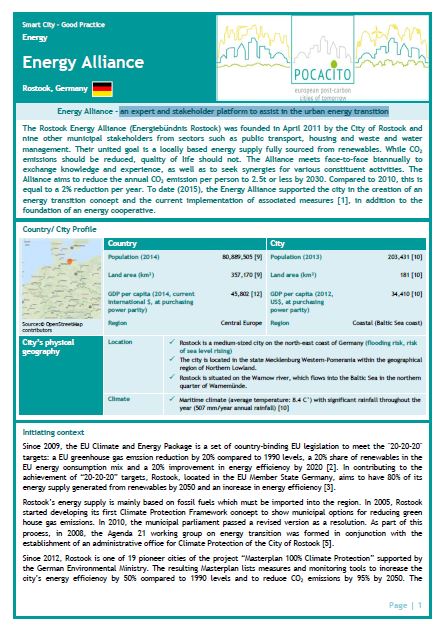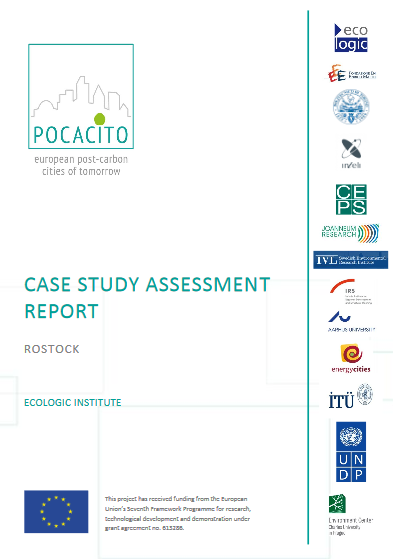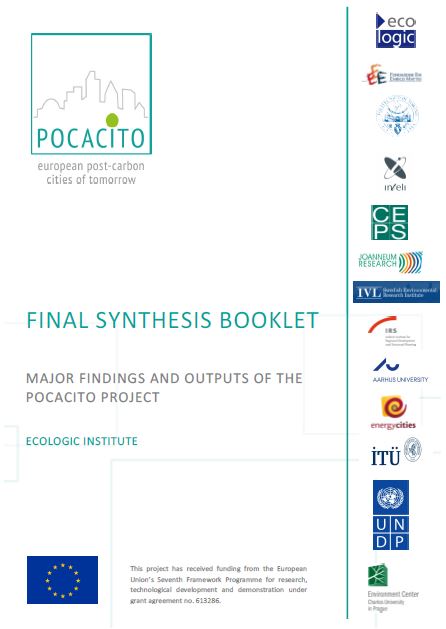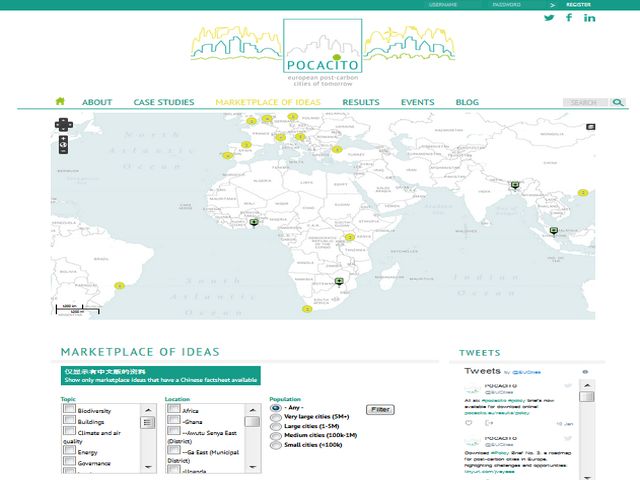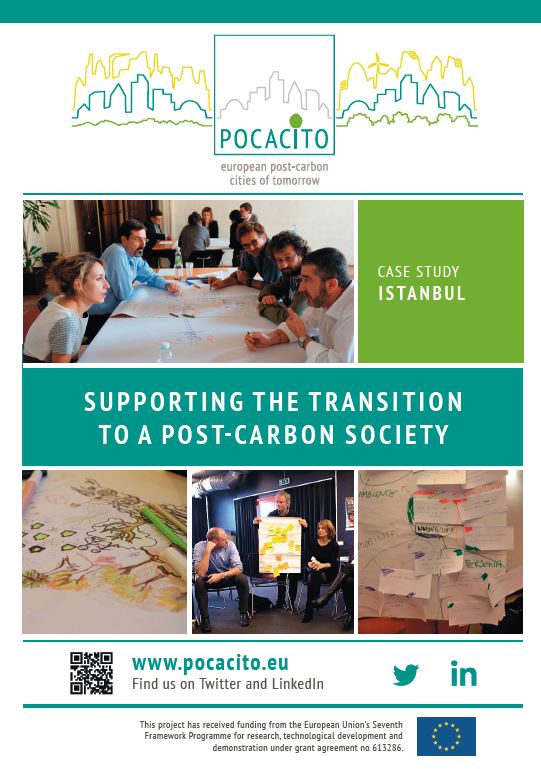Post-Carbon Cities in Europe: A Long-Term Outlook (POCACITO)
- Project
- Research Program
- Duration
-
-
In the transition to a post-carbon economy and sustainable societies, cities will be faced with unique challenges. POCACITO focused on uncovering how to improve the resilience of cities and regions in order to reduce existing and emerging conflicts over resources and their use in light of societal mega‐trends, environmental deterioration and climate change.
The project POst‐CArbon CIties of TOmorrow – foresight for sustainable pathways towards liveable, affordable and prospering cities in a world context (POCACITO) developed an evidence‐based 2050 roadmap for EU post‐carbon cities. It thus supported the transition process to a post‐carbon economy occurring in cities and towns, ranging from megacities to metropolitan areas and urban agglomerations larger than 1 million people as well as small and medium‐sized cities.
participatory scenario development and innovative long‐term outlooks
POCACITO's approach used participatory scenario development as a mutual learning and living lab environment strategy. The project recognised that post‐carbon city transitions should improve urban resilience to fluctuating environmental and socio‐economic pressure. Pressure in this context includes long-term changes in urban resident demographics, city and rural migration patterns, and potential city health concerns. Further, POCACITO developed innovative long‐term outlooks for European post‐carbon cities to address climate adaptation and urban environmental metabolism concerns by using a participatory city case study approach. Case study cities include Barcelona, Copenhagen/Malmö, Istanbul, Lisbon, Litoměřice, Milan/Turin, Rostock and Zagreb. These cities developed qualitative post‐carbon visions with local stakeholders. Visions were chosen based on selected best‐practice measures and preliminary city assessments.
new urban governance approaches
Developing strategies that simultaneously enhance the quality of life, promote economic prosperity and reduce impacts on the environment are a difficult task and require a holistic approach encompassing foresight of long-term trends that influence urban development and the assessment of socio‐economic consequences resulting from the various pathways toward a post‐carbon city. Therefore, the development of innovative and pragmatic urban governance approaches was an essential element of the process.
post‐carbon city index
Accompanying studies yielded a typology of post‐carbon cities and a post‐carbon city index. A "marketplace of ideas" spread best practices from other EU cities and global cities in global emerging nations, allowing an international exchange of urban best practices. Related research produced case study city roadmaps and an evidence‐based 2050 roadmap for post‐carbon EU cities within a global context.
The project’s research supported the sustainable development objective of the Europe 2020 strategy and the Innovation Union flagship initiative. POCACITO ran from January 2014 to December 2016. The European Commission’s Directorate General for Research and Innovation was co‐funding the activity through its 7th Framework Programme (FP7), under the Theme Social Sciences and Humanities.




